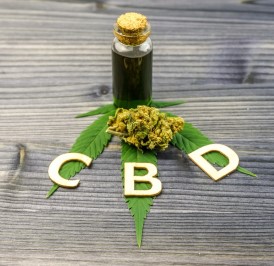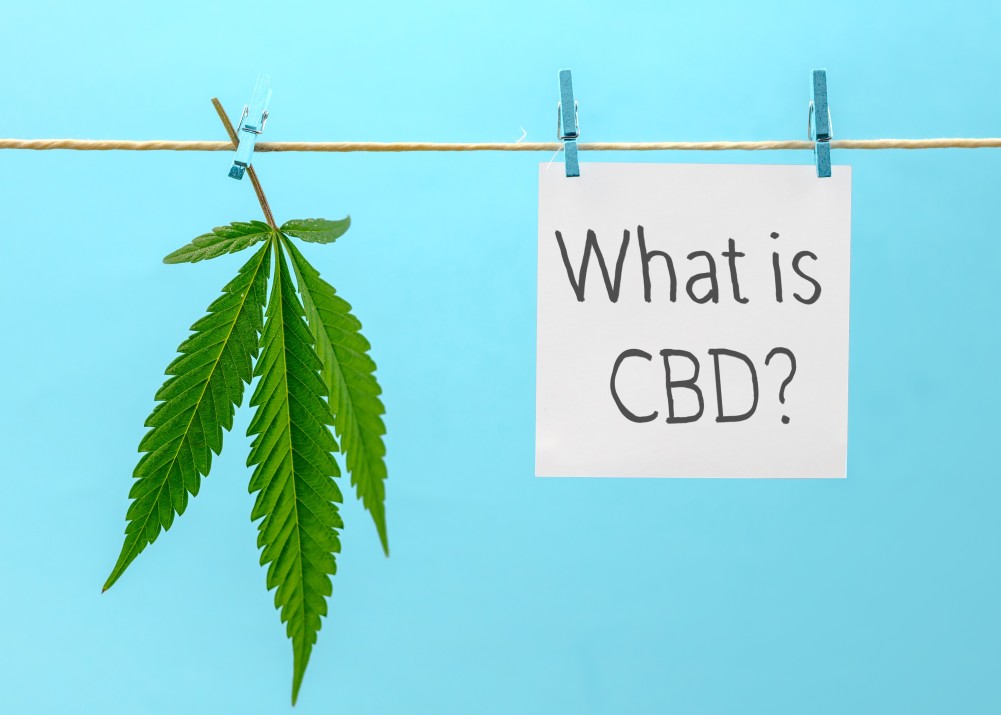CBD, also known as cannabidiol, is a compound found in the cannabis plant. It is one of the many active cannabinoids present in the plant, and it is becoming increasingly popular in the world of health and wellness.
In recent years, CBD has been studied for its potential therapeutic benefits and has been linked to a variety of medical uses including pain relief, inflammation, and seizure control.
Introduction
CBD has also been studied for its potential use in the treatment of mental health conditions, particularly depression. While the research into this area is still in its early stages, the preliminary results are promising and have led to increasing interest in the potential of CBD to offer relief from depression.
Depression is a common and serious mental health disorder characterized by persistent feelings of hopelessness, sadness and loss of interest in activities. It affects millions of people around the world and can have a devastating impact on their lives. Traditional treatments for depression often involve psychotherapy, medication, or a combination of the two. But for some, these treatments may not be enough to manage their depression symptoms.
This is where CBD comes in. Recent studies have suggested that CBD may be a useful adjunct to traditional treatments for depression, and it is gaining traction as an alternative option for those who want to explore natural methods to improve their mental wellbeing. In this article, we will explore the potential of CBD to help lift your spirits by looking at the scientific evidence for its use in depression, as well as the potential benefits, side effects, and dosage.

Physiological Explanation of CBD and Depression
CBD, or cannabidiol, is a naturally occurring compound found in cannabis plants. It is one of the most abundant chemical compounds in the plant and is known for its soothing and calming effects. It is becoming increasingly popular in the medical community due to its potential for helping to treat a wide range of medical conditions. But how does CBD work in the body to help treat depression?
CBD interacts with the body’s endocannabinoid system (ECS). This system is responsible for maintaining homeostasis, or balance, in the body and is made up of cannabinoid receptors located throughout the body. When CBD enters the body, it binds to these receptors, activating the ECS and causing the body to release chemical messengers that can have a range of effects on the body.
Studies have shown that CBD can have a positive effect on the symptoms of depression. It has been found to increase serotonin levels, which is linked to improved mood and motivation. It has also been found to reduce inflammation, which is thought to be a major contributor to depression.
CBD has also been found to reduce anxiety, a common symptom of depression. This can be attributed to its ability to increase anandamide, a neurotransmitter that has been shown to reduce anxiety and depression. Other studies have also found CBD to have an anti-psychotic effect, which can help improve mood and reduce the symptoms of depression.
The scientific evidence of CBD’s effects on depression is growing. Recent studies have found that CBD can reduce the symptoms of depression in both humans and animals, as well as having positive effects on other mental health conditions such as anxiety and PTSD. This is promising news for anyone looking to use CBD as a potential treatment for depression.
Benefits of CBD for Depression
In recent years, CBD has been gaining attention in the medical community for its potential to help with various ailments, including depression. Depression is a serious mental health disorder that affects millions of people around the world. It is characterized by feelings of sadness, hopelessness, and low self-esteem. In extreme cases, it can lead to suicidal thoughts and behaviors.
Research suggests that CBD may be able to help alleviate the symptoms of depression. It works by interacting with the endocannabinoid system, which is responsible for regulating the body’s mood, emotions, and stress levels. When CBD is consumed, it binds to receptors in the endocannabinoid system and helps to restore balance.
Studies have shown that CBD can help reduce symptoms of depression, such as feelings of sadness, irritability, and fatigue. It can also help to improve sleep, reduce anxiety, and increase motivation. In addition, CBD may be able to reduce stress and increase feelings of wellbeing.
CBD is also thought to be able to boost serotonin levels, which can improve mood and reduce feelings of sadness. In addition, CBD may be able to increase levels of the chemical anandamide, which helps to regulate mood and stress levels.
CBD has also been shown to have anti-inflammatory properties, which can help to reduce inflammation in the brain. This can help to reduce the symptoms of depression, such as fatigue and difficulty concentrating.
Finally, CBD may be able to reduce cravings for substances such as alcohol and other drugs, which can help to reduce depression symptoms. In addition, CBD may be able to help reduce the symptoms of post-traumatic stress disorder (PTSD).
Overall, CBD has a wide range of potential benefits for those suffering from depression. It can help to reduce symptoms, improve sleep, reduce anxiety, and boost serotonin levels. In addition, CBD may be able to reduce cravings for substances such as alcohol and drugs, and help to reduce symptoms of PTSD. For these reasons, it can be a promising solution for lifting spirits and improving overall well-being.
Side Effects of CBD
When it comes to using CBD for depression, it is important to understand the potential side effects that can occur with its use. While the side effects of CBD are generally mild, they can vary depending on the individual and the method of administration.
The most common side effects associated with CBD use are dry mouth, drowsiness, and dizziness. These side effects are usually mild and can usually be alleviated by reducing the dosage. In some cases, more serious side effects can occur, such as impaired motor function, confusion, and changes in blood pressure or heart rate.
It is important to note that CBD can interact with certain medications, such as blood thinners and certain antidepressants. Therefore, it is important to speak to your doctor before taking CBD if you are already taking any medications. Additionally, CBD can interact with certain supplements, so it is important to research any potential interactions before using CBD.
While the short-term side effects of CBD are generally mild, it is important to consider potential long-term side effects. While research is still ongoing, studies have shown that long-term use of CBD can lead to liver toxicity and increased risk of certain forms of cancer. Therefore, it is important to speak with your doctor before taking CBD and to ensure that you are using a high-quality product from a reputable source.
The safety of CBD is still being studied, but there is some potential for misuse and abuse. It is important to be aware of the potential risks associated with CBD and to ensure that you are taking it as directed. Additionally, it is important to be aware of the potential for addiction, as CBD can be habit-forming.
In conclusion, while the potential side effects of CBD use are generally mild, it is important to be aware of the potential for more serious side effects, drug interactions, and potential for addiction. Therefore, it is important to speak to your doctor before taking CBD and to ensure that you are using a high-quality product from a reputable source.

The Legalities Of CBD
Dosage & Administration of CBD
CBD is available in a variety of forms and can be administered in different ways. The most common methods of taking CBD include oral ingestion, topical application, inhalation, and sublingual administration.
When it comes to oral ingestion, CBD can be consumed in the form of capsules, tinctures, and edibles. Capsules are one of the most straightforward and convenient ways to take CBD, as they are pre-measured and easy to swallow. Tinctures are a liquid form of CBD that can be taken sublingually or under the tongue. They come in many flavors and are easy to dose, making them an ideal choice for those who want to get the most out of their CBD experience. Lastly, edibles are a delicious way to consume CBD, as they come in a variety of treats and snacks.
Topical application is a great way to use CBD for localized pain relief and other skin conditions. CBD topicals are available in lotions, creams, salves, and balms that can be applied directly to the skin. This form of CBD is generally applied to the affected area and left on for several minutes.
Inhalation is the fastest way to experience the effects of CBD, as it enters the bloodstream almost immediately. However, this method of delivery is not recommended for those with respiratory conditions or sensitivities. CBD can be inhaled through vaporizers, vape pens, and e-cigarettes.
Sublingual administration is a popular method of taking CBD. This method involves placing the CBD oil directly under the tongue, where it is absorbed into the bloodstream. This method of delivery is similar to oral ingestion, but it can produce faster results.
When it comes to dosage, it is important to start with a low dose and gradually increase it over time. Everyone is different and reacts differently to CBD, so it is important to experiment and find the dose that is right for you. It is also important to speak to a healthcare professional before starting any CBD regimen.
It is also important to consider the source of CBD when selecting a product. Most manufacturers suggest buying products from reputable sources and avoiding sources that are not certified by the FDA. Additionally, it is important to look for products with third-party lab testing to ensure that the products contain the correct amount of CBD and other cannabinoids.
When it comes to using CBD for depression, the most important thing is to experiment and find the dosage and delivery method that works best for you. It is important to speak to a healthcare professional before starting any CBD regimen to ensure that the products are safe and effective for you. With the right dosage and careful experimentation, CBD can be a promising solution for lifting spirits and improving mental health.
Conclusion
When it comes to depression, many people are turning to CBD for relief. Not only is it a natural, non-habit-forming alternative to pharmaceutical drugs, but it can also improve symptoms associated with depression such as sleep and anxiety. While there is still much research to be done, the evidence of CBD’s effectiveness in reducing depression is promising.
But it’s important to note that CBD can have some side effects, both short-term and long-term. These effects can range from mild to severe depending on the individual, so it’s important to speak to a healthcare professional to determine the best course of action for your specific situation. Additionally, it is important to research different CBD products and find the optimal dosage for your needs.
When used responsibly and safely, CBD can be an effective natural solution for lifting spirits and reducing the symptoms of depression. It is important to note that it is not a cure, but it can be a valuable aid in managing the symptoms of this debilitating condition.
If you or someone you know is exploring CBD as a way to manage depression, it is important to talk to a healthcare professional to ensure that it is the right option. Additionally, there are a wealth of resources available to learn more about the science and efficacy of CBD. With the right information, CBD can be a promising solution for lifting spirits and managing depression.
